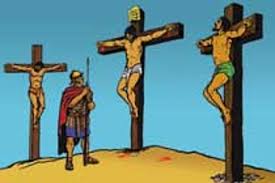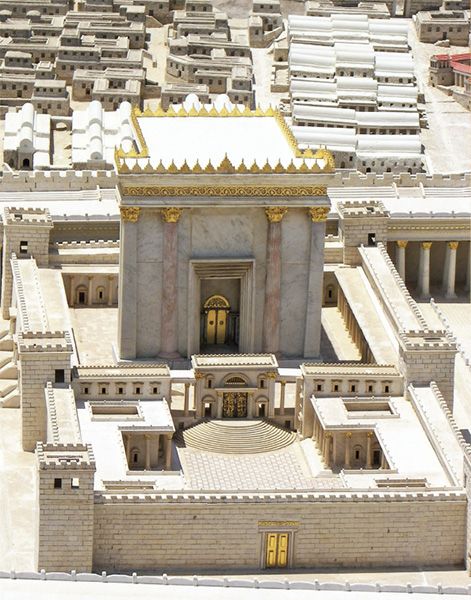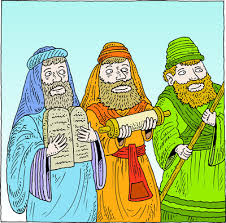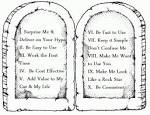I Peter 3:13 – Now who is there to harm you if you are zealous for what is good?
Here the apostle makes mention of a proverb or general truth.
 Those who lead upright lives save themselves from a lot of drama, trouble and aggravation. Those who repay evil with good and strive to treat their neighbors as themselves can generally expect to live a peaceful and tranquil life without interference from the law or evil men.
Those who lead upright lives save themselves from a lot of drama, trouble and aggravation. Those who repay evil with good and strive to treat their neighbors as themselves can generally expect to live a peaceful and tranquil life without interference from the law or evil men.
Those who cross the line into unrighteousness (as well as those who are always trying to straddle the fence between good and evil), will often find themselves at odds with the law and society.
We classify this as a general truth rather than a natural law, because many righteous people have found themselves under persecution or distress despite the fact that they are living holy and peaceful lives.
I Peter 3:14 – But even if you should suffer for righteousness' sake, you will be blessed. Have no fear of them, nor be troubled,
As Peter now intimates, holy conduct generally provides an environment of peace and safety, yet the possibility of persecution for righteousness' sake still exists.
If you find yourself in a situation where you are being persecuted for being righteous or for professing the gospel, take heart – this is an indication that you are blessed by God.
Matthew 5:10 – Blessed are they who are persecuted for righteousness' sake: for theirs is the kingdom of heaven.
To suffer for doing good is to follow in the footsteps of Christ himself. Though he was sinless and did only good things, he was rejected, persecuted and crucified by evil men.
Persecuted Christians are not to adopt any of the wicked customs of their persecutors. They are to stand firm, trust in God and keep adhering to Christianity. Though they may be dragged into court, forced to pay fines, imprisoned, banished or even killed, they should not be afraid for God is with them. He sees all things and he will bless his servants for their suffering; they are promised an inheritance in the kingdom of heaven.
I Peter 3:15 – but in your hearts honor Christ the Lord as holy, always being prepared to make a defense to anyone who asks you for a reason for the hope that is in you; yet do it with gentleness and respect,
Instead of being terrified by evil men, we need to cultivate a healthy respect for God in our hearts. We do this when we submit to his wisdom and providence, imitate his holiness, give him the glory he is due, trust in his faithfulness, rely upon his power and walk with him daily.
 Remember, out of the abundance of the heart the mouth speaks. So if you are truly honoring God in your heart, your reverence of him will spill out of your mouth and be displayed in your conduct. This will bear witness to unbelievers. When others see that you are different, they will want to know why.
Remember, out of the abundance of the heart the mouth speaks. So if you are truly honoring God in your heart, your reverence of him will spill out of your mouth and be displayed in your conduct. This will bear witness to unbelievers. When others see that you are different, they will want to know why.
You need to be ready to give an answer to those who ask you about your Christian walk. This means being able to clearly articulate your testimony or recounting what God has done for you. Be sure to include what God did in your past, how he sustains you daily, and your future hope of heaven.
So let me ask you this – if you had to give a testimony for Christ right now, could you make a logical statement of your faith in about 3-4 minutes?
You don't need to include every single detail of your life thus far. If you try to take an hour to make your point, you will certainly lose your audience.
Make sure your testimony is coherent. If you give a fragmented account, switching from topic to topic, the listener will be confused and you will lose their attention. You might want to consider limiting your testimony to one or two major points, in order to keep it simple.
Why not try it right now and see how you do? This will prepare you for your next opportunity to share the gospel.
I Peter 3:16 – having a good conscience, so that, when you are slandered, those who revile your good behavior in Christ may be put to shame.
What is conscience? It is the judgment of the mind respecting right and wrong.
As we all know from experience, our conscience first comes into play when we are considering a course of action. We have probably all seen those cartoons where there is an angel whispering in one of our ears, while a devil is speaking to the other! This actually gives us a pretty good picture of conscience, because it activates whenever we are faced with a choice.
Once we make our choice and the action is complete, the conscience judges our actions and instantly approves or condemns them.
However, our conscience is not able, in and of itself, to determine what is right; its job is to prompt us to do our duty. Our conscience must be trained in right and wrong. As we study the scriptures we program our conscience with the laws and truth of God.
If our conscience is programmed with anything other than the word of God (culture, society, our own wisdom, even religion), it becomes an unsafe guide. Obviously, if our views or the world's views are erroneous, which they probably are, our conscience may think it is okay to do something that is a direct violation of God's law.
Proverbs 16:25 – There is a way that seems right unto a man, but the end thereof are the ways of death.
Why does the apostle mention our conscience in this text? Peter teaches that not only should you be ready and able to make a clear confession of your faith, your life should match your confession; your conscience should be clear with respect to the way you live.
When we live our lives in holiness and godliness, our properly programmed conscience will bear witness that we are living in accordance with God's will. Then, when our enemies unjustly speak evil of us, our conduct will bear a true witness about us; their baseless accusations will be apparent.
I Peter 3:17 – For it is better to suffer for doing good, if that should be God's will, than for doing evil.
Peter reminds us that there are two reasons for affliction.
One reason for suffering is because we have done wrong. For example, as discussed earlier in this study, God has given civil authority to certain people in order to establish a peaceful society. If we sin and break the law by robbing a bank, then we should expect to be caught and punished for that crime.
I have never been to prison, but I can imagine that it would indeed have an element of suffering and tribulation. If we suffer by our prison experience, how does that glorify God? Overall, it really doesn't. If anything, it glorifies civil authority by commending their actions to the citizenship.
However, if we suffer for righteousness it brings about God's glory and our good. Yes, you read this correctly - suffering may be part of God's will/plan for your life.
If you have been a Christian for any length of time, you know this to be true. God never promised his people a problem free, carefree life here on planet earth. What he did promise was to walk with us every step of the way. He promised to give us his strength in our weakness. He promised not to give us more than we could bear. And He promised to give us life eternal.
God is more interested in your eternal good than your temporary earthly comfort. While you are here, Holy Spirit is committed to transforming your life into the image of Jesus.
In the process of that transformation, changes need to be affected in your character. And there are some transformations which only affliction can accomplish.
Peter reminds us that suffering for righteousness can (and does) facilitate desirable qualities and character in the Christian. This not only benefits the believer, it provides a powerful witness to evil men.
On the other hand, suffering for sin is mostly just punitive. It does not necessarily stimulate Christian growth. It does not glorify our Father; instead it drags his name through the mud. It also gives evil people another reason to discredit the gospel.
So make sure your suffering is the right kind!
I Peter 3:18 – For Christ also suffered once for sins, the righteous for the unrighteous, that he might bring us to God, being put to death in the flesh but made alive in the spirit,
For Christ also suffered: Those who suffer for righteousness sake can take comfort knowing that they are walking in the footsteps of Jesus. Although innocent, he was not exempt from trials and suffering.
Once for sins: Under the law, the blood of goats, lambs and other animals were sacrificed for the sins of the people. But these sacrifices merely covered over sin; they could not truly atone for it. Thus, sacrifices of this kind had to be made over, and over, and over, and over...
But it was only necessary for Jesus to die/sacrifice himself once for our sin because his sacrifice was perfect and his blood has the power to truly cleanse us.
Hebrews 9:12 - Neither by the blood of goats and calves, but by his own blood he entered in once into the holy place, having obtained eternal redemption for us.
The righteous for the unrighteous, that he might bring us to God: The death of Christ reconciles us to God and provides us with access to the Father with freedom and boldness (Romans 5:1-2, Ephesians 3:11-12).
Being put to death in the flesh: The crucifixion eventually caused the death of Jesus' body.
But made alive in the spirit: Although Jesus suffered in the flesh, he was 'quickened' or made alive by the Spirit; his own divine energy.
I Peter 3:19-20 – in which he went and proclaimed to the spirits in prison, because they formerly did not obey, when Gods patience waited in the days of Noah, while the ark was being prepared, in which a few, that is, eight persons, were brought safely through water.
And now we come to what might very well be the two most difficult verses in Peter's epistle! There are two main prevailing interpretations of what Peter means here. As per my usual MO, I plan to relate both interpretations to you, allowing you to decide for yourself what you believe.
Here are some things to keep in mind as you make your decision:
As with all scripture, we cannot simply pull a verse or two out of a passage and make a doctrine out of it. Scripture must ALWAYS be understood/interpreted in the context in which it appears. This principle will greatly assist us in determining the true meaning.
So what has Peter been discussing in this portion of the chapter? The main focus has been suffering. Peter has pointed out that there are basically two causes for Christian suffering.
One cause is punitive in nature. It is a result of a wrong (sin or crime) committed by the believer. Peter mentions this briefly in the beginning of his discourse. Then, he switches gears to discuss the second type of Christian suffering – righteous suffering.
In the case of righteous suffering, the believer has done nothing wrong, however, God allows some unjust suffering in order to shape the character of the believer, or otherwise mature him/her in the faith.
Peter goes on to tell his readers that the ultimate example of righteous suffering was Jesus himself. Now, the last point Peter made prior to this, was that the body of Jesus died on the cross, but his Spirit was alive. Jesus raised himself up by the power of his own divine energy.
Interpretation #1
Peter immediately follows with 'in which he went' or your translation may say 'by which he went'. In either case, he is referring to the Spirit of Jesus.
So according to interpretation #1, the Spirit of Jesus went and made a proclamation. Who did he make this announcement to? This theory says that he proclaimed a message to people who were sometimes disobedient during the longsuffering of God during the days of Noah. Or in other words, the wicked people of Noah's generation, while they were alive on planet earth. Notice, no other people are specified in this text. This is who the Spirit of Jesus was addressing.
These people/spirits are said to be 'in prison'. The original word rendered 'prison' actually means 'watch, guard, the act of keeping watch or the guard itself; a place where anyone is watched or guarded as a prison'. Those who adhere to this interpretation believe 'watched' or 'guarded' would be the best translation.
The text further indicates when they were being watched/guarded – for the 120 years that the ark was being prepared.
Overall the meaning/interpretation is something along these lines: The people of Noah's day were disobedient sinners. Because of their transgressions, God sentenced them to destruction. But first, the Spirit of Jesus delivered messages of repentance through his servant Noah to the people of that generation. Then God watched to see if they would repent or not. The long suffering of God waited 120 years; but they chose to ignore the divine message and continue in their transgressions. Therefore, judgment was finally carried out. As a result, only 8 persons were saved on the ark.
Those who accept this theory point out that when we consider the Old Testament, we find many instances where the Spirit of Jesus was present in the prophets before his physical birth in the world (Isaiah 48:16, Zechariah 7:12, Nehemiah 9:30). Therefore, we are not surprised to learn that the Spirit of Jesus also spoke through Noah (Genesis 6:3).
 They point out that the Spirit of God continues to speak through his servants even now, as evidenced by the apostles themselves, and many modern day Christians.
They point out that the Spirit of God continues to speak through his servants even now, as evidenced by the apostles themselves, and many modern day Christians.
They also believe the phrase 'spirits in prison' may refer to the fact that that particular generation of people are now in the custody of death; they are definitely now spirits and in a sense they are in prison awaiting final judgment at the end of the time (Revelation 20:7).
We could also express their idea yet another way: At the appointed time, Jesus came to earth in the flesh to preach the message of life to the world. The Spirit of this same Jesus came to earth before the flood and preached a message of repentance to the unbelievers through his servant Noah, so they might have a chance to repent and be saved. Again, there are many instances where the Spirit of Jesus came upon prophets to preach repentance and call people back to God, so this is not unusual.
Interpretation #2
The second interpretation asserts that these verses tell us what Jesus was doing while his body was dead – the time between his death and resurrection.
Again, the last point Peter made prior to this, was that the body of Jesus died on the cross, but his Spirit was alive. Jesus raised himself up by the power of his own divine energy.
In this case, the phrase 'in which he went' is understood as meaning that the Spirit of Jesus went, at that exact time, to make a proclamation to other spirits who were imprisoned.
Proponents of this interpretation say that Jesus went to Hades (also called Sheol or the grave). Hades is a kind of prison where departed souls/spirits are gathered and held until final judgment. This would clearly be the state of the unbelievers from the era of Noah. Hades/Sheol/the Grave has at least two compartments (or possibly four), one for the righteous departed and one for the wicked departed (Luke 16:23).
This theory says that when the Spirit of Jesus arrived there, he made a proclamation or preached to the spirits that were there. While we have no record of what the outcome of that message was, those who adhere to this interpretation believe that at least some departed spirits repented at the preaching of the word (God's word is never void - Isaiah 55:11).
 The overall meaning is something along these lines: When Jesus died, his Spirit was quickened/made alive and he (his Spirit) immediately went to the place in which other disembodied spirits of men were being imprisoned. These were incapable of receiving any direct impression from him, unless he was a spirit as they were. There, he delivered a message or made them an offer of salvation, which at least some of them accepted.
The overall meaning is something along these lines: When Jesus died, his Spirit was quickened/made alive and he (his Spirit) immediately went to the place in which other disembodied spirits of men were being imprisoned. These were incapable of receiving any direct impression from him, unless he was a spirit as they were. There, he delivered a message or made them an offer of salvation, which at least some of them accepted.What do you think? Both interpretations answer some questions, but confront us many with others that simply cannot be answered with the knowledge we now have.
In addition, there are various other interpretations, which we will not consider today. These include: The Lord descending into hell to triumph over Satan, the preaching of Christ being an announcement of condemnation, not salvation, that the spirits in prison were heathens who lived according to the light they had, but were idolaters, etc.
Putting those unanswerable questions aside, let's consider something else. Why does Peter use this particular example of man's wickedness (willful unbelief) and God's longsuffering before judgment (120 years)? Surely, in the course of time there are many known examples; so why this one?
It may be because of what Jesus revealed to the apostles before the crucifixion:
Matthew 24:37-39 – For as were the days of Noah, so will be the coming of the Son of Man. For as in those days before the flood they were eating and drinking, marrying and giving in marriage, until the day when Noah entered the ark and they were unaware until the flood came and swept them all away, so will be the coming of the Son of Man.
In the days of Noah, only 8 people were 'brought safely through the water' while the wicked majority perished. As God has no pleasure in the death of the wicked (Ezekiel 33:11), I imagine the grief of Father God was evident in the words of Jesus that day.
Is it possible that the awful magnitude of that tragedy really hit home with Peter as he considered that his generation was heading the same direction? Does he mention the incident of Noah in his own epistle because it is a dire warning?
Later, Peter does make mention of the fact (2 Peter 3:9) that God is 'longsuffering toward us, not willing that any should perish but that all should come to repentance'.
So perhaps this is more than just an ordinary example. It may be a solemn warning to both Christians and unbelievers. If we are warned about this by Moses (who wrote Genesis), then Jesus and finally Peter, I suggest we pay careful attention to the message presented here.
I Peter 3:21 – Baptism, which corresponds to this, now saves you, not as a removal of dirt from the body but as an appeal to God for a good conscience, through the resurrection of Jesus Christ,
The focus of this verse is the actual water itself – the flood water and the water used in baptism. Peter indicates that when the righteous were saved through the flood, it was a prophetic antitype of baptism.
It was the water which saved Noah and his family from death by bearing up the ark. But it should be noted that the only reason they were in the ark in the first place, was because their hearts were righteous before God. Thus, being in the ark was an outward sign of their repentance.
In the same way, water baptism is an outward sign that a person has experienced true repentance of the heart. The man (or woman) being baptized has acknowledged his sinful state, is trusting in the blood of Christ to cleanse him, is turning from sin, and is dedicating himself to God.
 So in both cases, water is associated/connected with salvation, but it is not the CAUSE of it. Rather, we see that a right heart before God was the cause of the salvation.
So in both cases, water is associated/connected with salvation, but it is not the CAUSE of it. Rather, we see that a right heart before God was the cause of the salvation.
Please do not fall into the trap of believing that salvation can be obtained through the mere physical act of water baptism! The actual act of baptism cannot save you, apart from a relationship with Jesus!
Peter goes on to confirm this for us. He declares that the outward immersion (or sprinkling) by water removes dirt from the body, but that is all it can do. Salvation is a cleansing of the soul. It is a 'good conscience' or a right relationship with God which can only be achieved by renouncing sin and accepting the blood of the resurrected Christ as the atonement for sin. Once this is done, God requires us to be baptized as a public confession of our faith.
I Peter 3:22 – who has gone into heaven and is at the right hand of God, with angels, authorities, and powers having been subjected to him.
Jesus, our ultimate example of righteous suffering was rewarded when his work was finished. He has been seated at the right hand of Father God, with all angles, authorities and powers being subject to him (Ephesians 1:21, Philippians 2:9-10).
The man or woman of God who is suffering righteously can take hope from this example. Indeed, to dwell on this thought can bring comfort in the midst of all trials. Jesus enters heaven victoriously. He represents a cessation from further troubles and suffering as well as advancement to the highest personal dignity. These gifts will be given to the faithful in Christ as well, when they too victoriously enter into all that God has prepared for them.
Let me offer you some encouragement:
Due to the culture we now find ourselves in, you may subject to righteous suffering. In other words, people may oppose or persecute you because you stand for Christ and his truth. If this occurs, do not think that it is a strange occurrence. The same thing has happened to many believers, including those of Peter's day.
During your suffering, do all you can to magnify the name of Jesus. And be encouraged by his example – one day you too will be vindicated and enter heaven victoriously!
Let me offer you some relief:
Are you suffering punitively (because you have sinned/done wrong and are being justly punished for it)? If so, forgiveness can be yours through the blood of Jesus. Even if you have done something unlawful and society has imprisoned you, you can still find meaning and fulfillment in life, through Christ Jesus.
Seek him today. Dedicate your life to him, and he will bring you satisfaction no matter what your circumstances.
Let me offer you some strength:
While we all receive Holy Spirit into our hearts upon salvation, there is also a greater measure of the Spirit available to all believers. This impartation of power and strength comes with the baptism in the Holy Spirit, which is promised to all believers:
Acts 2:39 – For the promise [of the baptism of the Spirit] is unto you, and to your children and to all that are afar off even as many as the Lord our God shall call.
If you have not been baptized in the Spirit, I encourage you to study the scriptures and learn about this gift. It is still in operation today, and God wants to bless you with it!










































